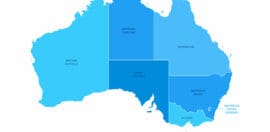The online divide leaving disadvantaged Australians behind

26 March 2020 at 8:20 am
There are 1 million Australian households without a home broadband internet connection
Workplaces, schools and government services are fast moving online in a bid to stop the spread of COVID-19, but advocacy groups say millions of Australians without a broadband internet connection risk being left behind.
With 1 million households without a broadband internet connection and up to 2.5 million people not online, Australia’s peak communications consumer organisation says if internet affordability and access isn’t addressed quickly, there will be severe economic and social consequences.
“More and more people are being asked to work or study from home each day, but that’s simply not possible if they can’t afford to be online,” Teresa Corbin, CEO of the Australian Communications Consumer Action Network (ACCAN), told Pro Bono News.
“We are undoubtedly going to see a deepening of the digital divide.”
Completely cut off
David Spriggs, the CEO of tech-for-good company Infoxchange, told Pro Bono News that with libraries and other community spaces now closed, there wasn’t anywhere families and individuals could go to access free internet.
“A lot of those options are now just cut off,” he said.
He added that a lot of the important health and travel information about COVID-19 was only available online, including government services such as MyGov, and telehealth services.
“The government has a responsibility to think about the capacity of low-income households to be able to connect and access those learning environments,” Spriggs said.
“It’s also really important that when they are putting out that information and services they are building it in an easy to use way for people with low levels of digital literacy.”
Vulnerable children left behind
Just last week ACCAN was contacted by a student who had spent over $500 in four months on excess data fees to complete schoolwork because they didn’t have home broadband.
And with no telling when school children will be allowed back into classrooms, Spriggs said that using mobile data wasn’t a viable option.
“If school children are potentially going to be accessing online learning for a period of months or more, they’re just not going to be able to participate effectively in that learning,” Spriggs said.
Gabriella Waaijman, Save the Children’s global humanitarian director, said governments needed to immediately put in place easy-to-use distance learning tools that didn’t exclude poor, disabled or marginalised school children.
“We need to get creative. In communities with little or no access to the internet for example, radio programs can enable children to continue their learning,” she said.
Waaijman added that the longer children were out of school, the less likely it was they would ever come back.
She said girls from low-income families were particularly at risk.
“As pressures mount on low-income families, children may need to work to bolster family incomes, and girls especially may also face a disproportionate burden of caring for family members who contract the virus or taking care of younger children,” Waaijman said.
Affordable broadband should be fast-tracked
ACCAN is now calling on the government to fast-track a proposal for a wholesale broadband concession that would give financially stressed Australians cheaper home internet.
“Our proposal would see NBN Co offer households on limited incomes a 50 mbps unlimited broadband service at a wholesale price of $20 per month,” Corbin said.
“This would allow telcos to offer broadband plans for as little as $30 per month to struggling households on government income support.”








